January 19-23, 2020
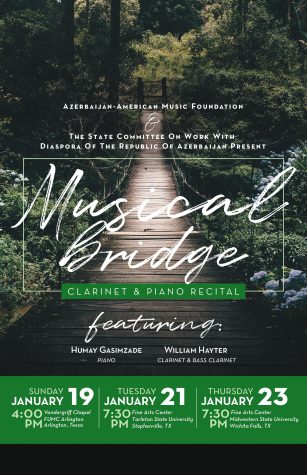
The Azerbaijan-America Music Foundation (AAMF) is known for building and developing intercultural relations and musical bridges between North America and Azerbaijan. On January 19-23, 2020, we organized and held one of the most exciting projects that altogether exhibited our mission and was much fun to work on.
Our very first concert program in the series of "Musical Bridge" united pianist Humay Gasimzade of Azerbaijan and William Hayter of the USA. Both are accomplished musicians specializing in contemporary music performance. Humay, a graduate of the Manhattan School of Music in New York, currently works on her doctorate in contemporary piano performance at Bowling Green State University in Ohio. William is a world-famous clarinet player. He is an associate professor of music at Midwestern University in Wichita Falls, Texas.
Our very first concert program in the series of "Musical Bridge" united pianist Humay Gasimzade of Azerbaijan and William Hayter of the USA. Both are accomplished musicians specializing in contemporary music performance. Humay, a graduate of the Manhattan School of Music in New York, currently works on her doctorate in contemporary piano performance at Bowling Green State University in Ohio. William is a world-famous clarinet player. He is an associate professor of music at Midwestern University in Wichita Falls, Texas.
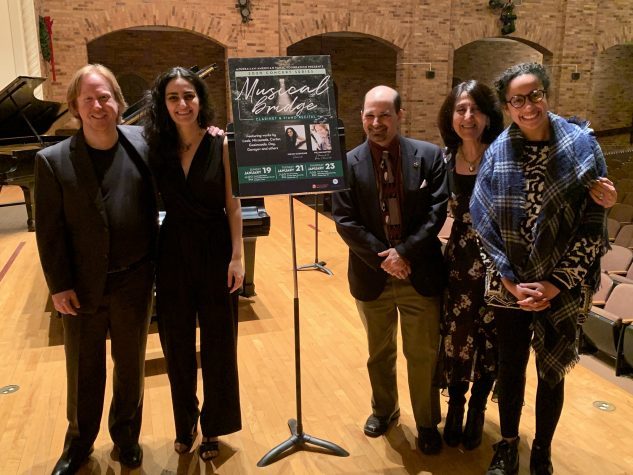
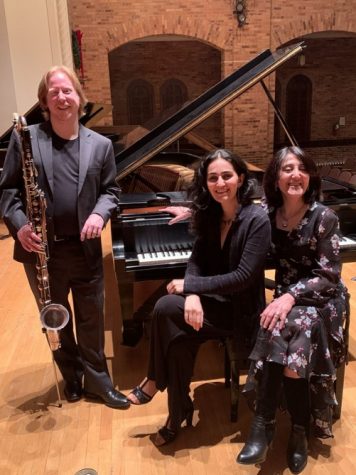
After the concert at Midwestern University
From left to right: William Hayter, Humay Gasimzade, and Dr. Jamila Javadova- Spitzberg
The union between Humay Gasimzadeh and William Hayter was a match in musical heaven. The program consisted exclusively of Azerbaijani and American composers' works and was filled with unusual timbres and performance techniques.
The first part of the concert featured pieces by classical and avant-garde American composers: Elliot Carter's "Caténaires," George Cramb's "Macrocosmos," David Loeb's "Sonata Lirica," Kevin Day's "Gymnopédie." Kevin Day is an American composer, conductor, and multi-instrumentalist from Arlington, Texas. This is how Day describes the Gymnopédie: "I wrote "Gymnopédie" initially for solo cello & piano back in 2018 for my friend and colleague Emmanuel Kwok. Of course, the name and music are reminiscent of French composer Erik Satie's famous "Gymnopédie No. 1." I wanted to break away from the "fast and loud" music and sought to tap into another side of my writing." This work was later adapted for solo viola (for Dr. Misha Galaganov) and solo bass clarinet (for William Hayter & Gary Whitman) and piano accompaniment.
The first part of the concert featured pieces by classical and avant-garde American composers: Elliot Carter's "Caténaires," George Cramb's "Macrocosmos," David Loeb's "Sonata Lirica," Kevin Day's "Gymnopédie." Kevin Day is an American composer, conductor, and multi-instrumentalist from Arlington, Texas. This is how Day describes the Gymnopédie: "I wrote "Gymnopédie" initially for solo cello & piano back in 2018 for my friend and colleague Emmanuel Kwok. Of course, the name and music are reminiscent of French composer Erik Satie's famous "Gymnopédie No. 1." I wanted to break away from the "fast and loud" music and sought to tap into another side of my writing." This work was later adapted for solo viola (for Dr. Misha Galaganov) and solo bass clarinet (for William Hayter & Gary Whitman) and piano accompaniment.
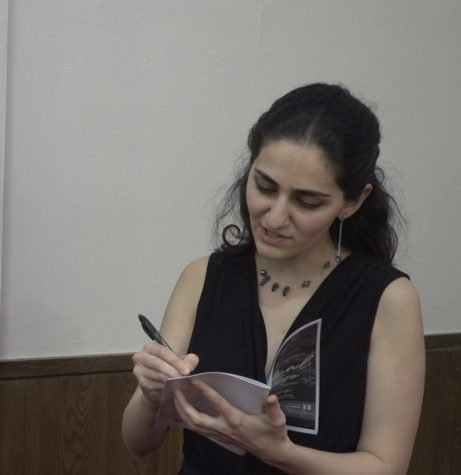
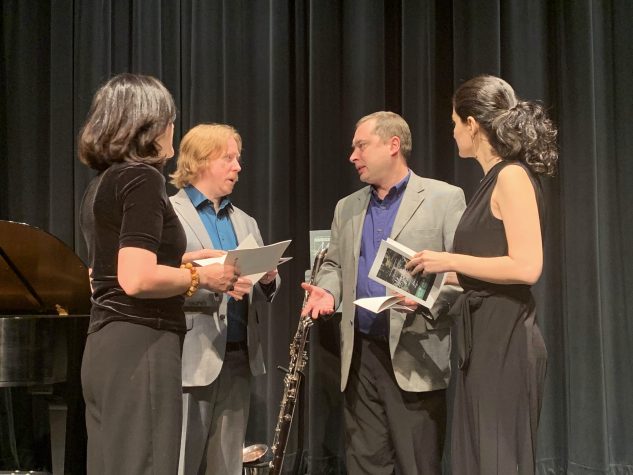
Signing programs
At Tarleton State University
In the second part of the program, the audience got acquainted with Azerbaijani classical and contemporary composers' works. Those were the "Waltz" from "The Path of Thunder" ballet by Gara Garayev, and a piece with the German titled "Ohne" by Khayyam Mirzazade. The latter is a meditative piece and based on the Azerbaijani art of Mugham.
It also included a premiere performance of the "Seen when night is silent" for clarinet and piano, written by rising Azerbaijani composer Turkar Gasimzade. Turkar and Humay Gasimzade are siblings. The piece was written and dedicated to Humay Gasimzade and William Hayter duo.
Turkar Gasimzada is an award-winning composer of acoustic and electroacoustic music. Gasimzadeh created work that combines contemporary performance techniques, including multi-phonics. The "Seen when night is silent" is composed after W. H. Auden's short poem, bearing the same title.
Turkar Gasimzada is an award-winning composer of acoustic and electroacoustic music. Gasimzadeh created work that combines contemporary performance techniques, including multi-phonics. The "Seen when night is silent" is composed after W. H. Auden's short poem, bearing the same title.
Seen when night is silent.
The bean-shaped island
And our ugly comic servant,
Who was observant.
O the verandah and the fruit,
The tiny steamer in the bay
Startling summer with its hoot:
You have gone away
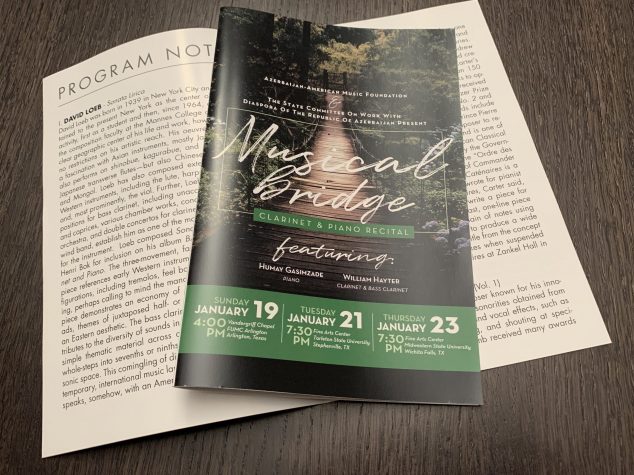
With support from the State Committee for Diaspora Affairs of the Republic of Azerbaijan, the "Musical Bridge" programs were held at the First United Methodist Church in Arlington, Texas, at Tarleton State University, Stephenville, Texas, and Midwestern State University, Wichita Falls, Texas.
